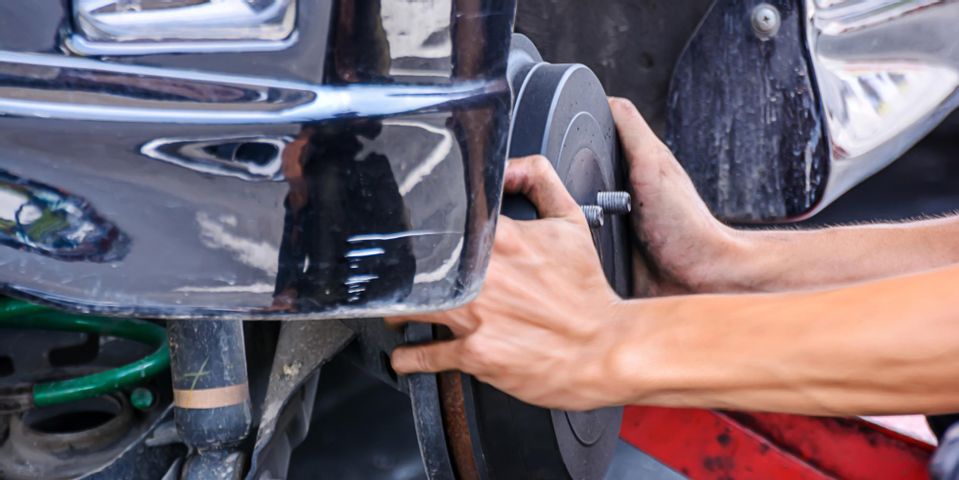What You Need to Know About Brake Pads

As a car owner, you should know how to properly care for the braking system. Friction is produced every time you apply the brakes. Inevitably, the pads will eventually wear out, putting your safety at risk as your car won’t be able to stop as easily. Here’s what you should know about brake pads and when they should be replaced.
How Do Brake Pads Work?
When you push down on the brake pedal in your car, the pads contribute to friction with the tires and the road, eventually bringing the vehicle to a stop. Every time this happens, the pads experience stress. Over time, the rubber material wears down, making it necessary to replace the pads to ensure your car can stop quickly and effectively—even in the worst conditions.
Why Should You Replace the Brake Pads?
 Over time, worn brake pads make it harder to slow down. You might have low brake fluid due to a leak or hear grinding or screeching sounds from steel coming into contact with the rotor; you might even notice a slight vibration that’s caused by an uneven rotor. These are all signs that the brake pads need to be replaced.
Over time, worn brake pads make it harder to slow down. You might have low brake fluid due to a leak or hear grinding or screeching sounds from steel coming into contact with the rotor; you might even notice a slight vibration that’s caused by an uneven rotor. These are all signs that the brake pads need to be replaced.
Typically, brake pads should be replaced every 50,000 miles. If your daily commute involves frequent stop-and-go traffic, the brakes will wear down more quickly; instead, try coasting from light to light and not slamming on the brakes. Also, check your brake fluid annually; over time, moisture accumulates in the fluid, slowly corroding the internal parts of the pads. To avoid repairs, review your vehicle's maintenance schedule.
By understanding how your brakes work and what you can do to prolong their life span, you can provide proper maintenance and repairs as needed. As a full-service auto repair shop, Dee's Auto Care Specialists in Onalaska and La Crosse, WI, and Winona, MN, can help you fix your brakes. Visit them online to learn more about their services, or call (608) 782-2530 to schedule repairs today.
About the Business
(2 reviews)
Have a question? Ask the experts!
Send your question

